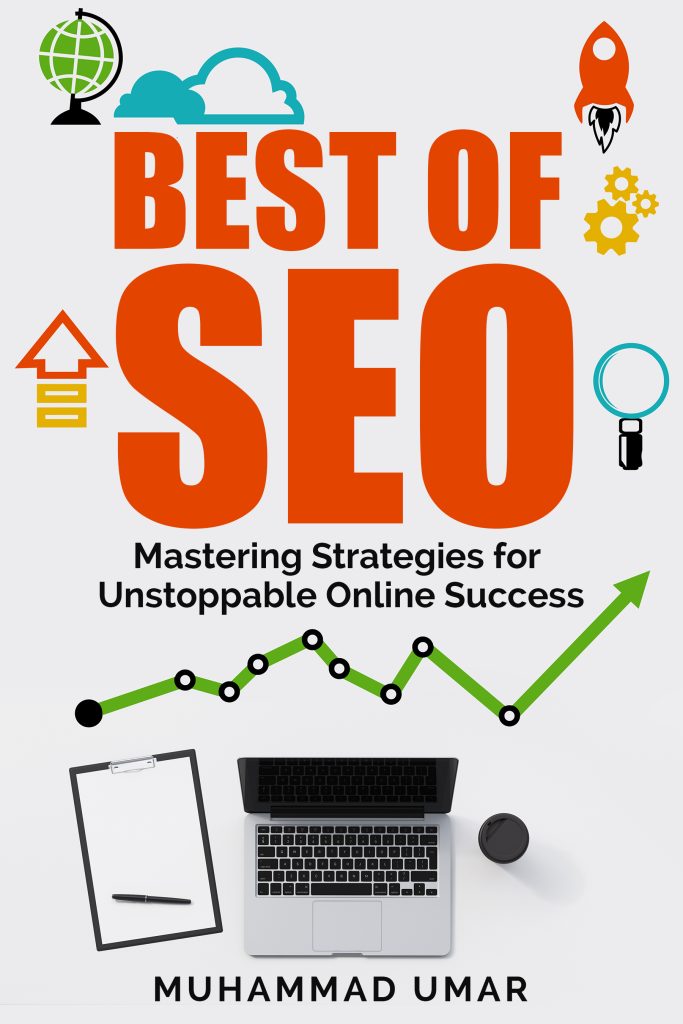July 04, 2023
Digital Marketing 101: Your Comprehensive Guide to Online Success
Introducing “Google SEO How to Dominate the Online Landscape.” In this comprehensive guide to digital marketing, you’ll uncover the strategies and tactics needed to navigate the ever-evolving world of Google SEO. From optimizing your website to driving targeted traffic, this guide is your roadmap to online success. Get ready to conquer the digital realm and make your mark with proven Google SEO techniques.

Table of Contents
1. Understanding Digital Marketinga. Definition and Importance of Digital Marketing
b. Advantages of Digital Marketing over Traditional Marketing
c. The Role of a Marketing Agency
2. Search Engine Optimization (SEO) a. What is SEO and Why Does it Matter?
b. Conducting Keyword Research for SEO
c. On-Page SEO: Optimizing Your Website
d. Off-Page SEO: Building Quality Backlinks
e. Technical SEO: Ensuring a Search Engine-Friendly Website
f. Local SEO: Optimizing for “Marketing Agency Near Me,” “Google SEO how to”
3. Social Media Marketing a. Leveraging Social Media Platforms for Business
b. Creating a Social Media Strategy
c. Engaging and Growing Your Social Media Audience
d. Paid Advertising on Social Media
e. Measuring Social Media ROI
4. Email Marketinga. The Power of Email Marketing in the Digital Age
b. Building an Email List
c. Crafting Engaging and Effective Email Campaigns
d. Personalization and Automation in Email Marketing
e. Analyzing Email Marketing Metrics
5. Content Marketing a. Understanding Content Marketing and Its Benefits
b. Creating a Content Strategy
c. Developing High-Quality and Engaging Content
d. Content Distribution and Promotion
e. Measuring Content Marketing Success
6. Pay-Per-Click (PPC) Advertising a. Introduction to PPC Advertising
b. Choosing the Right Advertising Platforms
c. Creating Compelling Ad Copy and Landing Pages
d. Setting Up PPC Campaigns
e. Monitoring and Optimizing PPC Campaigns
7. Analytics and Measurement a. The Importance of Analytics in Digital Marketing
b. Setting Up Google Analytics
c. Key Metrics to Track and Analyze
d. Making Data-Driven Decisions

Welcome to the comprehensive guide that will equip you with the knowledge and strategies you need to achieve online success through digital marketing. In today’s digitally-driven world, businesses of all sizes must harness the power of digital marketing to reach their target audience, generate leads, and drive conversions. This guide will walk you through the essential pillars of digital marketing, provide practical tips, and empower you to make informed decisions. So, let’s embark on this exciting journey together and unlock the potential of digital marketing!
Whether you’re a small business owner, a marketer, or an aspiring entrepreneur, this beginner’s guide will provide you with the foundation you need to navigate the digital realm effectively. Let’s dive in!
1. Understanding Digital Marketing:
a. Definition and Importance of Digital Marketing:
In this section, we will define digital marketing and explain its importance in today’s business landscape. Digital marketing refers to the promotion of products or services using digital channels such as search engines, websites, social media, email, and more. We’ll explore how digital marketing allows businesses to reach a wider audience, engage with customers, and drive measurable results.
b. Advantages of Digital Marketing over Traditional Marketing:
Here, we’ll highlight the advantages of digital marketing compared to traditional marketing methods. These advantages include cost-effectiveness, targeted audience reach, measurable results, flexibility, and the ability to track and adjust campaigns in real-time. By understanding these benefits, you’ll see why digital marketing is a valuable investment for businesses of all sizes.
c. The Role of a Marketing Agency:
In this sub-section, we’ll discuss the role of a marketing agency in helping businesses succeed in the digital marketing realm. A marketing agency specializes in developing and executing digital marketing strategies tailored to the unique needs of each client. They have the expertise, tools, and resources to optimize campaigns, drive traffic, generate leads, and improve overall online visibility. We’ll emphasize the importance of partnering with a marketing agency to leverage their knowledge and experience for maximum results.
By the end of this section, viewers will have a clear understanding of what digital marketing entails, why it’s essential in today’s business environment, and the benefits of working with a marketing agency for their digital marketing needs. This foundational knowledge will set the stage for the subsequent sections, diving deeper into specific aspects of digital marketing.
2. Search Engine Optimization (SEO)
a. What is SEO and Why Does it Matter?
In this section, we’ll provide an in-depth explanation of what SEO is and why it’s crucial for online success. SEO refers to the process of optimizing your website and its content to improve its visibility in search engine results pages (SERPs). We’ll delve into the importance of SEO by highlighting how search engines drive organic traffic, how users trust organic search results, and how SEO can enhance user experience and credibility.
b. Conducting Keyword Research for SEO:
Here, we’ll guide viewers through the process of conducting keyword research, a critical step in any successful SEO strategy. We’ll explain the importance of choosing relevant and high-volume keywords that align with your business goals. Viewers will learn about various keyword research tools and techniques, such as using Google Keyword Planner, Google SEO how to, exploring related searches, and analyzing competitor keywords.
c. On-Page SEO: Optimizing Your Website:
In this sub-section, we’ll focus on on-page SEO optimization techniques that help improve your website’s visibility in search engines. We’ll cover essential aspects such as optimizing meta tags (title tags and meta descriptions), creating compelling and keyword-rich content, optimizing heading tags, improving website speed and mobile responsiveness, and implementing structured data markup. Viewers will gain actionable tips to enhance their website’s on-page SEO factors.
d. Off-Page SEO: Building Quality Backlinks:
Off-page SEO involves building high-quality backlinks from external websites, which plays a crucial role in boosting search engine rankings. We’ll discuss the importance of backlinks in establishing authority and credibility for your website. Viewers will learn effective link-building strategies, including guest blogging, influencer outreach, social media promotion, and online directory submissions. We’ll emphasize the significance of acquiring natural and relevant backlinks for long-term SEO success.
e. Technical SEO: Ensuring a Search Engine-Friendly Website:
Technical SEO focuses on optimizing the technical aspects of your website to improve its crawlability, indexability, and overall search engine friendliness. We’ll delve into technical elements such as website structure, URL optimization, XML sitemaps, robots.txt files, canonical tags, and website security. Viewers will gain insights into optimizing their website’s technical foundation to enhance its visibility in search engine results.
f. Local SEO: Optimizing for “Marketing Agency Near Me,” “google seo how to”:
Local SEO is crucial for businesses targeting a specific geographic area. In this sub-section, we’ll explain the importance of local SEO and provide strategies for optimizing your website to appear in local search results. We’ll cover techniques such as claiming and optimizing Google My Business listings, acquiring online reviews, optimizing local citations, and leveraging location-specific keywords. Viewers will understand how to improve their visibility in local search queries, specifically for the “marketing agency near me,” “Google SEO how to” search term.
By the end of this comprehensive section, viewers will have a thorough understanding of SEO, its significance for online visibility, and a range of practical techniques to optimize their website for search engines and Google SEO how to. Whether they are new to SEO or looking to refine their existing strategies, this section will equip them with the knowledge and skills needed to improve their search engine rankings and attract organic traffic.
FAQ
Is SEO free on Google?
Yes, SEO (Search Engine Optimization) itself is free on Google. It refers to the organic efforts businesses undertake to improve their website’s visibility in search engine results. While implementing SEO strategies may require time and effort, it does not involve direct costs to appear in organic search listings.
How to do SEO for beginners?
If you’re new to SEO, start by optimizing your website’s content with relevant keywords, creating high-quality and engaging content, improving website speed and user experience, and earning quality backlinks. Learning about on-page and off-page optimization techniques, as well as staying updated with SEO best practices, will help you establish a strong foundation in SEO.
Can I do SEO myself?
Absolutely! SEO can be done by anyone willing to put in the effort and learn the necessary skills. With the right resources and guidance, you can implement effective SEO strategies on your own. However, keep in mind that SEO is a continuous process, and it may be beneficial to seek professional assistance as your business grows.
Does Google have an SEO tool?
Yes, Google offers various tools to assist with SEO efforts. Google Search Console provides insights into website performance, indexing status, and search traffic data. Google Analytics helps track website traffic and user behavior. Additionally, tools like Google Keyword Planner aid in keyword research and planning content based on search trends and volumes.
3. Social Media Marketing:
a. Leveraging Social Media Platforms for Business:
In this section, we’ll explore the various social media platforms available and how businesses can leverage them to achieve their marketing goals. We’ll discuss the popularity and user demographics of major platforms such as Facebook, Instagram, Twitter, LinkedIn, and YouTube. Viewers will learn about the unique features and strengths of each platform and how to determine which platforms are most suitable for their target audience.
b. Creating a Social Media Strategy:
A social media strategy is essential for achieving success in social media marketing. Here, we’ll guide viewers through the process of creating an effective social media strategy. We’ll cover aspects such as defining goals and objectives, identifying target audience demographics and interests, selecting the right content mix, establishing brand voice and guidelines, and developing a content calendar. Viewers will gain insights into creating a cohesive and engaging social media presence aligned with their business objectives.
c. Engaging and Growing Your Social Media Audience:
Engaging with the social media audience is crucial for building brand awareness, fostering customer loyalty, and driving conversions. In this sub-section, we’ll explore strategies for creating engaging content, including storytelling, user-generated content, interactive polls and quizzes, contests, and influencer collaborations. We’ll also provide tips on community management, responding to comments and messages, and fostering meaningful conversations. Additionally, we’ll share techniques for growing the social media audience organically through effective hashtag usage, cross-promotion, and partnerships.
d. Paid Advertising on Social Media:
Social media platforms offer robust advertising options to reach a wider audience and drive targeted traffic. Here, we’ll delve into the world of paid advertising on social media. We’ll explore various ad formats and targeting options available on popular platforms, such as Facebook Ads Manager, Instagram Ads, Twitter Ads, LinkedIn Ads, and YouTube Ads. Viewers will learn how to set up ad campaigns, define target audiences, create compelling ad copy and visuals, and track and optimize campaign performance.
e. Measuring Social Media ROI:
Measuring the return on investment (ROI) of social media marketing efforts is crucial to determine the effectiveness of campaigns and make informed decisions. In this sub-section, we’ll discuss key metrics and tools for measuring social media ROI. We’ll cover metrics such as reach, engagement, clicks, conversions, and revenue. Viewers will learn how to use analytics platforms provided by social media platforms and third-party tools to track and analyze performance, identify trends, and make data-driven adjustments to their social media strategies.
4. Email Marketing:
a. The Power of Email Marketing in the Digital Age:
In this section, we’ll emphasize the power and effectiveness of email marketing in today’s digital landscape. We’ll discuss how email marketing allows businesses to directly reach their target audience, build relationships, and drive conversions. Viewers will learn about the advantages of email marketing, such as its cost-effectiveness, high ROI, and ability to deliver personalized and targeted messages to subscribers.
b. Building an Email List:
Building a quality email list is crucial for successful email marketing campaigns. Here, we’ll guide viewers through the process of building an email list from scratch. We’ll explore various strategies such as creating lead magnets, implementing opt-in forms on websites and landing pages, running contests or giveaways, and utilizing social media and other digital channels for list building. Viewers will gain insights into growing their subscriber base and nurturing a engaged and interested audience.
c. Crafting Engaging and Effective Email Campaigns:
Creating engaging and effective email campaigns is key to capturing the attention of subscribers and driving desired actions. In this sub-section, we’ll delve into the elements of a successful email campaign, including subject lines, email design, persuasive copywriting, compelling call-to-action (CTA) buttons, and relevant visuals. Viewers will learn best practices for creating impactful emails that resonate with their audience and drive conversions.
d. Personalization and Automation in Email Marketing:
Personalization and automation are powerful techniques to enhance the effectiveness of email marketing. We’ll explore the importance of personalizing email content based on subscriber preferences, demographics, and behaviors. Additionally, we’ll discuss the benefits of using email automation tools to streamline campaigns, such as welcome emails, drip campaigns, and abandoned cart reminders. Viewers will understand how personalization and automation can save time, increase engagement, and improve overall campaign performance.
e. Analyzing Email Marketing Metrics:
Measuring the success of email marketing campaigns is essential for optimizing performance and achieving desired outcomes. In this sub-section, we’ll discuss key email marketing metrics and how to analyze them. Metrics such as open rates, click-through rates, conversion rates, bounce rates, and unsubscribe rates will be covered. Viewers will learn how to use email marketing analytics tools to gain insights into campaign performance, identify areas for improvement, and make data-driven decisions for future campaigns.
5. Content Marketing
a. Understanding Content Marketing and Its Benefits:
In this section, we’ll provide viewers with a comprehensive understanding of content marketing and its benefits. We’ll explain that content marketing involves creating and distributing valuable, relevant, and consistent content to attract and engage a target audience. We’ll discuss how content marketing helps build brand awareness, establish thought leadership, nurture customer relationships, drive organic traffic, and generate leads. Viewers will gain insights into the power of content marketing as a strategic approach to achieve business goals.
b. Creating a Content Strategy:
Developing a well-defined content strategy is essential for a successful content marketing campaign. Here, we’ll guide viewers through the process of creating a content strategy that aligns with their business objectives. We’ll cover aspects such as identifying target audience personas, conducting competitor and keyword research, setting content goals, determining content formats and channels, and establishing a content calendar. Viewers will learn how to create a strategic roadmap to guide their content creation and distribution efforts.
c. Developing High-Quality and Engaging Content:
Content quality is crucial for capturing and retaining audience attention. In this sub-section, we’ll delve into the key elements of creating high-quality and engaging content. We’ll discuss the importance of understanding audience needs and interests, conducting thorough research, and crafting compelling headlines and introductions. Viewers will learn techniques for creating different types of content, such as blog posts, articles, infographics, videos, and podcasts. We’ll also explore the significance of storytelling, visuals, and incorporating calls-to-action (CTAs) within the content.
d. Content Distribution and Promotion:
Creating great content is just the first step; effectively distributing and promoting it is equally important. In this section, we’ll discuss various content distribution and promotion strategies. We’ll explore channels such as social media, email marketing, guest blogging, influencer collaborations, content syndication, google seo how to and search engine optimization (SEO). Viewers will learn how to leverage these channels to increase content visibility, reach a wider audience, and drive traffic back to their website or landing pages.
e. Measuring Content Marketing Success:
Measuring the success of content marketing efforts is essential for continuous improvement. In this sub-section, we’ll discuss key metrics and tools for measuring content marketing success. We’ll cover metrics such as website traffic, engagement metrics (likes, shares, comments), conversion rates, time on page, and bounce rates. Viewers will learn how to use analytics platforms, such as Google Analytics, and other content marketing tools to track and analyze performance. We’ll emphasize the importance of aligning content metrics with business goals and making data-driven decisions to optimize content marketing strategies.
They will be equipped with the knowledge and strategies to create a well-defined content strategy, develop high-quality and engaging content, effectively distribute and promote their content, and measure the success of their content marketing efforts. With these skills, viewers will be able to leverage content marketing to establish their brand, drive traffic, and achieve their business objectives.
6. Pay-Per-Click (PPC) Advertising
a. Introduction to PPC Advertising:
In this section, we provide an introduction to PPC advertising and its significance in digital marketing. We explain the concept of PPC, where advertisers pay a fee for each click on their ads. We discuss how PPC advertising can drive targeted traffic, increase brand visibility, and achieve marketing objectives. Viewers gain insights into the benefits of PPC advertising and its role in complementing overall marketing strategies.
b. Choosing the Right Advertising Platforms:
We guide viewers in selecting the most suitable advertising platforms for their PPC campaigns. We discuss popular platforms such as Google Ads, Bing Ads, Facebook Ads, Instagram Ads, and LinkedIn Ads. Viewers learn about unique features, audience demographics, and targeting options of each platform to make informed decisions.
c. Creating Compelling Ad Copy and Landing Pages:
This sub-section explores techniques for crafting persuasive ad copy that captures attention and drives conversions. We discuss the importance of relevant keywords, clear CTAs, and impactful messaging. We also emphasize the significance of optimizing landing pages for a seamless user experience and desired actions.
d. Setting Up PPC Campaigns:
We walk viewers through the process of setting up a PPC campaign, from defining goals and budgeting to selecting keywords, creating ad groups, and configuring targeting settings. We discuss campaign structure, bid strategies, and tracking mechanisms for accurate measurement. Viewers gain practical knowledge of campaign setup best practices.
e. Monitoring and Optimizing PPC Campaigns:
Monitoring and optimizing PPC campaigns is vital for maximizing ROI and achieving objectives. We delve into the process of monitoring performance, analyzing data, and making data-driven optimizations. We discuss key metrics like CTR, conversion rate, CPC, google seo how to and ROAS. Viewers learn how to use campaign analytics, conduct A/B testing, adjust bids and targeting, and optimize ad copy and landing pages.
With this detailed breakdown of PPC advertising, viewers gain a solid understanding of its fundamentals and practical implementation. They acquire knowledge and strategies for choosing the right advertising platforms, creating compelling ad copy and landing pages, setting up campaigns, and monitoring and optimizing performance. These skills empower viewers to run successful PPC campaigns and drive targeted traffic to achieve their marketing goals.
7. Analytics and Measurement:
a. The Importance of Analytics in Digital Marketing:
In this section, we emphasize the crucial role of analytics in digital marketing. We explain how analytics provides valuable insights into campaign performance, audience behavior, and overall marketing effectiveness. Viewers learn that analytics allows businesses to track and measure the success of their marketing efforts, identify areas for improvement, and make data-driven decisions. We highlight the importance of leveraging analytics to optimize marketing strategies and drive better results. Snippet: “Gain a deeper understanding of the power of analytics in digital marketing and unlock valuable insights to enhance your marketing efforts.”
b. Setting Up Google Analytics:
Google Analytics is one of the most popular and powerful analytics tools available. In this sub-section, we provide a comprehensive guide on setting up Google Analytics for websites. We walk viewers through the process of creating an account, adding the tracking code to their website, and configuring essential settings. We also discuss advanced features and customization options that can enhance data collection and analysis. Snippet: “Learn how to set up Google Analytics and harness its capabilities to track and analyze website performance.”
c. Key Metrics to Track and Analyze:
Understanding and tracking key metrics is vital for measuring the success of digital marketing campaigns. In this sub-section, we identify and explain essential metrics that viewers should track and analyze. These metrics may include website traffic, conversion rate, bounce rate, average session duration, goal completions, and more. We discuss the significance of each metric and how it contributes to assessing campaign effectiveness and identifying areas of improvement. “Discover the key metrics to measure and analyze to gauge the performance and success of your digital marketing campaigns.”
d. Making Data-Driven Decisions:
Making informed decisions based on data is crucial for driving marketing success. In this sub-section, we delve into the process of using analytics data to make data-driven decisions. We discuss the importance of interpreting data accurately, identifying patterns and trends, and drawing actionable insights. We provide guidance on how to leverage analytics data to optimize marketing strategies, refine targeting, allocate resources effectively, and improve overall campaign performance. “Learn how to harness the power of data to make informed decisions that drive your marketing strategy forward.”
“Unlock the potential of analytics and measurement in digital marketing. From setting up Google Analytics to tracking key metrics and making data-driven decisions, our comprehensive guide empowers you to optimize your campaigns, measure success, and drive better results. Leverage the power of data to refine your strategies and achieve your marketing goals.”

FAQs (Frequently Asked Questions):
Q1: How much should you pay for a marketing agency?
A: The cost of hiring a marketing agency can vary depending on various factors such as the scope of services, industry, location, and agency reputation. It’s essential to understand that marketing agency fees can range from a few hundred to several thousand dollars per month. The best approach is to discuss your specific requirements with multiple agencies and obtain tailored quotes that align with your budget and business goals. “Discover how much you should expect to pay for a marketing agency and find a pricing structure that fits your budget and objectives.”
Q2: Is it worth it to hire a marketing agency?
A: Hiring a marketing agency can be a valuable investment for businesses of all sizes. Marketing agencies bring expertise, experience, and a strategic approach to help businesses reach their target audience, generate leads, and drive growth. With their industry knowledge and access to the latest marketing tools and technologies, agencies can deliver effective campaigns and achieve measurable results. By outsourcing marketing efforts to professionals, businesses can save time, focus on core operations, and benefit from a holistic and data-driven marketing approach. “Discover the benefits of hiring a marketing agency and how it can be a worthwhile investment to achieve your business goals.”
Q3: What is a marketing agency fee?
A: A marketing agency fee refers to the cost that businesses pay to engage the services of a marketing agency. The fee structure can vary depending on factors such as the agency’s pricing model (hourly rate, monthly retainer, project-based), the scope of services, and the duration of the engagement. It typically covers the agency’s expertise, strategy development, campaign execution, ongoing monitoring, and reporting. “Understand what a marketing agency fee encompasses and how it covers the range of services provided by the agency.”
Q4: What services does a marketing agency provide?
A: Marketing agencies offer a wide range of services to help businesses promote their products or services, build brand awareness, and achieve marketing objectives. These services may include but are not limited to:
– Digital marketing strategy development
– Search engine optimization (SEO) – Social media marketing and advertising
– Pay-per-click (PPC) advertising
– Content marketing
– Email marketing
– Website design and development
– Branding and creative services
– Analytics and data analysis
– Conversion rate optimization (CRO)
The specific services provided by a marketing agency can vary based on their expertise and the needs of their clients. “Explore the comprehensive range of services offered by marketing agencies, including digital marketing strategy development, SEO, Google SEO how to, social media marketing, PPC advertising, and more.”
“Find answers to common questions about marketing agency fees, the value of hiring a marketing agency, and the diverse services provided by marketing agencies. Discover Google SEO how to get marketing agency that can help your business succeed in the digital landscape.”
Digital marketing is the cornerstone of online success in today’s digital age
In conclusion, here are five key takeaways from Digital Marketing 101:
Digital marketing is essential for online successA holistic approach is crucialData analysis drives informed decisionsConsistency and adaptation are keyConsider partnering with a marketing agency
Get started today
Ready to take your digital marketing to the next level? Schedule a personalized consultation with our expert team today and let us help you craft a winning strategy tailored to your business goals. Don’t miss out on the opportunity to boost your online presence and drive measurable results. Schedule your consultation now and unlock the full potential of digital marketing for your business!
Your Ultimate Guide to Mastering Conversational AI
Dive into the world of cutting-edge conversational AI with our book, packed with insights, strategies, and practical examples to help you harness the full potential of OpenAI Chat GPT.
Master the Art of Best SEO Strategies
Elevate your website’s visibility and drive organic traffic with our comprehensive book on SEO. Discover the most effective techniques, insider tips, and practical guidance to optimize your website.
Comments
[op3_comments_render][/op3_comments_render]

Share
Tweet
Pin
Share




